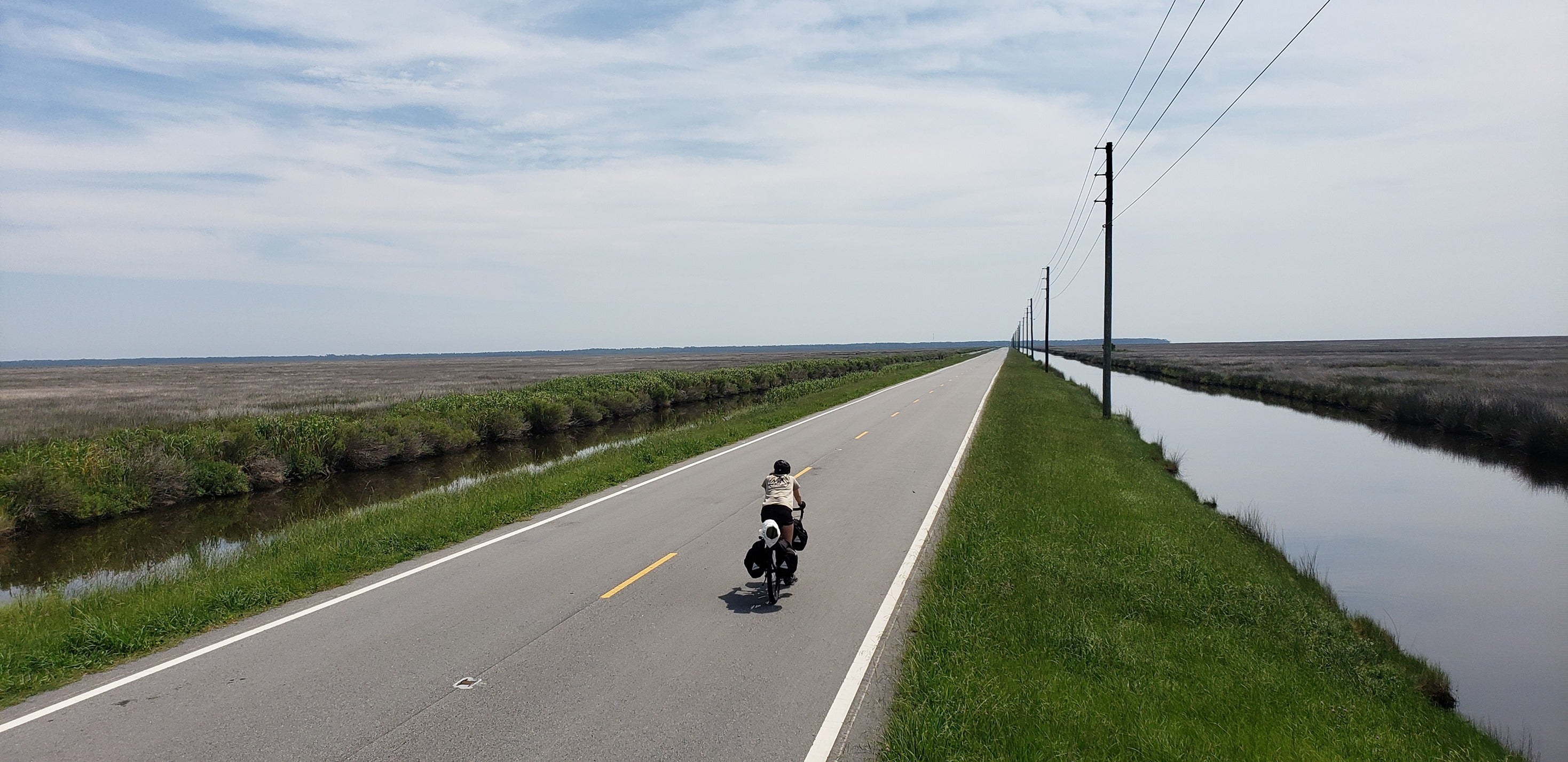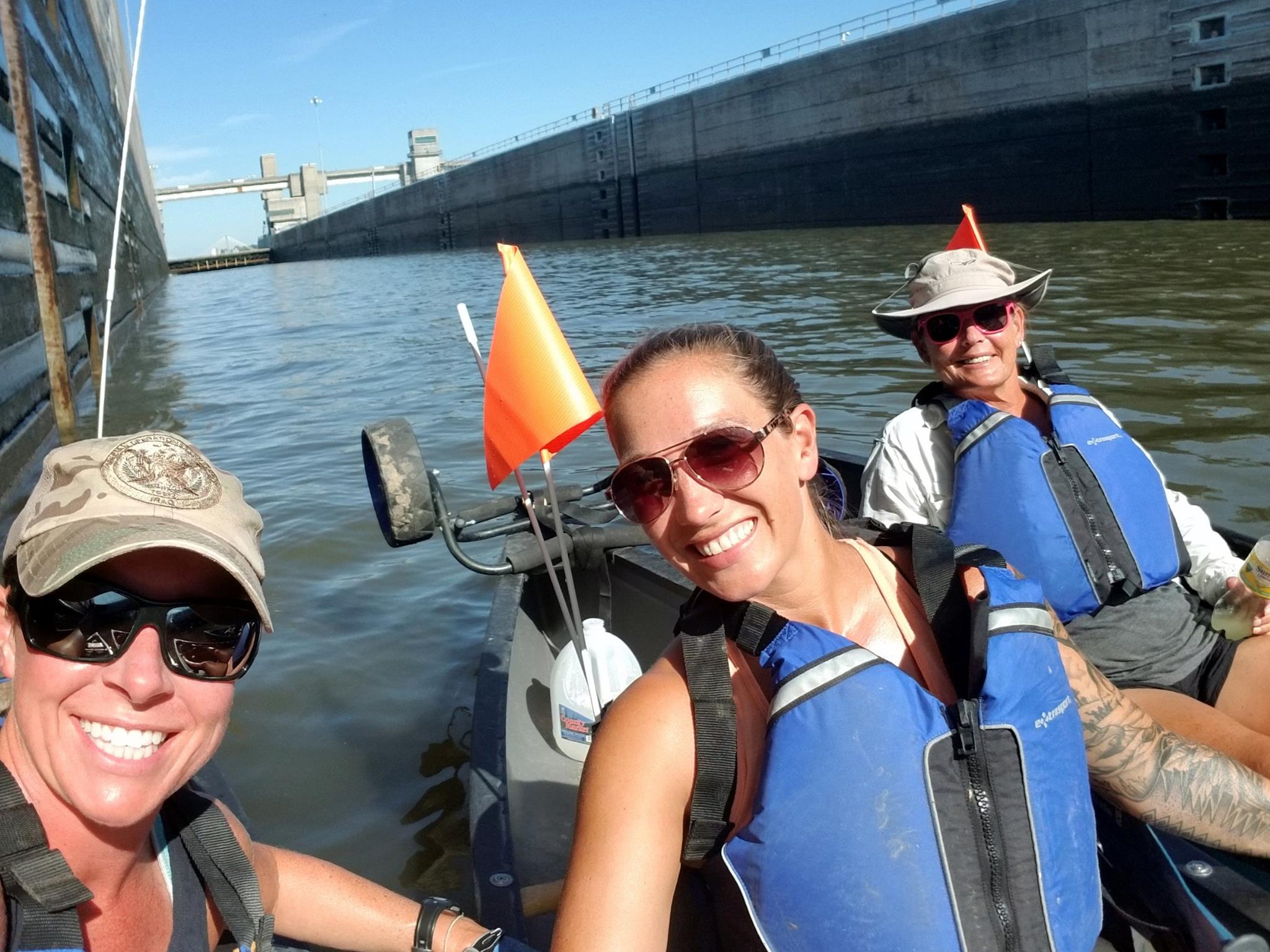Warrior Expeditions Uses Outdoor Adventure to Help Veterans “Walk off the War”
"I got out of the military in 2014, and I wasn't sure what I was going to do with my life," Michelle Revoir, a United States Air Force veteran, confessed.
Revoir had spent 11 years as a Videographer and Aerial Combat Broadcaster for the Air Force, which included deployments to Iraq and Afghanistan. Having grown up in North Carolina, Michelle had always been familiar with the Appalachian Trail and wanted to give hiking it a try. As she was researching the trail, she came across a newly formed organization called Warrior Expeditions. This organization would soon provide her with the direction she searched for during her transition back to civilian life.

Warrior Expeditions Connects Veterans with the Power of Nature
As the organization's mission states: "Warrior Expeditions is a veteran nonprofit outdoor therapy program that helps veterans transition from their wartime experiences through long distance outdoor experiences." The organization started in 2012 with a veteran named Sean Gobin, who served for 12 years as an Infantry Rifleman and Armor Officer for the United States Marine Corps. Well, really, it started a little earlier than that–in 1948 to be exact.
Following the devastations of World War II, a soldier named Earl Shaffer told a friend that he was going to "walk off the war." Shaffer, indeed, would become the first person to hike the entire length of the Appalachian Trail from Georgia to Maine. When Gobin returned home to the United States following three combat deployments in Iraq and Afghanistan, it was Shaffer's footsteps in which he decided to follow. After completing all 2,192 miles of the Appalachian Trail, Gobin strongly believed in the powerful, therapeutic nature of, well–nature. He wanted to share that experience with other veterans. Hence, in 2013, Gobin created the Warrior Hike, Warrior Bike, and Warrior Paddle programs, each designed to help veterans transition back into civilian life.

Michelle Revoir Begins Her Warrior Expeditions Journey
After applying and being accepted to the 2015 Warrior Hike program on the Appalachian Trail, Revoir received all of the gear and guidance she needed for the hike ahead. She began her long walk in the woods with a group of fellow veterans. It opened her eyes to resources like VFWs and American Legions, which provided trail support to the veterans along the way and became a point of connection for Revoir and others even after their hike ended.
"I loved my experience so much that I came back the next year to hike with the new year of hikers," Revoir shared. "I was able to give them some insight on how the hike went for me, and just little lessons that you pick up along the way. I really enjoyed that."
Gobin noticed Revoir's commitment to the mission of Warrior Expeditions, and so following her second year of hiking, he asked if she'd prototype the Mountains-to-Sea Trail in North Carolina for him. She enthusiastically agreed and set out on the trail with her brother, a Purple Heart recipient. By the next year, she still wanted more, so she began volunteering with Warrior Expeditions, helping out with both the Appalachian Trail and Mountains-to-Sea Trail participants that year. The year after that, she joined a Warrior Paddle program down the length of the Mississippi River.

"When I was finishing the paddle, Sean asked me if I wanted to work for the organization," Revoir remembered. "I thought, well, I'm already spending all my time here anyway. I believe in what they do. I just think it's such a great program, so to be able to work for them was even better."
Today, Revoir is the Director of Development for Warrior Expeditions, which runs 10 trips each year for 40 veterans to find healing in the wilderness. She personally makes sure each veteran has the gear they need, joins them for the first few days to kickoff their trip, and acts as a point of contact should they need anything after that. Leaving their families again for an extended period of time after already having been away on military duty can be hard on some veterans. Revoir's pre-trip support helps veterans work through those upfront challenges to see the larger picture ahead.
Warrior Expeditions is Making an Impact on the Lives of Veterans
Over 2.5 million veterans have returned home from the wars in Iraq and Afghanistan since 2001, and the Department of Veterans Affairs estimates that over 20% of these veterans suffer from Post-Traumatic Stress Disorder. Warrior Expeditions believes that this is exacerbated by how quickly modern transportation can move a veteran from combat zone back to "regular" life with little time to process that transition. The trail, they believe, allows for that contemplative march home to occur retroactively–complete with camaraderie and community.

"One of the biggest things that got me actually wanting to continue with Warrior Expeditions was I watched two of the veterans I initially hiked with change," Revoir explained. "When they started the hike, they were incredibly unsocial. People were actually saying, like, man, those Warrior Hike guys are real assholes! But towards the middle and end of the hike, they were actually hanging out with other hikers, not just veterans, but other hikers. That was huge. They wouldn't even talk to other hikers when we started. And now, one of them was giving group hugs and even hiked naked on Hike Naked Day! In the beginning, we never would have guessed he would've done any of that stuff. It was such a huge change that we saw."
In addition to the anecdotal evidence of how the Warrior programs improve veterans' lives, Warrior Expeditions has partnered with two psychologists, and fellow veterans, from the University of Georgia to measure program effects on the well-being of participating veterans. Each veteran takes a survey before and after their trip with questions covering five measures that assess post-traumatic stress, depression, anxiety, emotional expression, and psychiatric symptoms.
"Short trips out in the woods are always really good, but having the time to spend eight hours a day on the trail for three to six months is a whole different story," Michelle described. "You really have the time to process everything that you went through. And when that's your only goal–to find where you're sleeping for the night–and when you only have the stuff on your back, it makes life simple. It makes it easier to–for lack of better terms–deal with your crap when you have less distractions."

The extended time on the trail to decompress is coupled with support from a licensed clinical psychologist who offers psychoeducational services to Warrior Expeditions veterans at any time during their journey. Once per week, participating veterans also receive strategies based on the framework of Cognitive Behavioral Therapy to help normalize post-combat reactions and reintegrate back into society. This therapy is a problem-focused and action-oriented approach to help veterans recognize and alter dysfunctional or maladaptive emotions, thoughts, and behaviors.
The survey data have shown significant positive changes in veterans following this supported trail journey.
How Warrior Expeditions Supports Veterans Long After the Trail
"We had a woman in her forties who when she started the trail was incredibly closed off–really didn't talk to anybody, was super uncomfortable, cried at the drop of a hat, just had all of these emotions that she couldn't deal with," Revoir reflected. "Within four days of hiking, she had a complete breakdown, and was just like, 'This is what I should have been doing, trying to deal with my stuff. I couldn't do it on my own.' And then she just changed. From that moment, every time I saw her, she was more open and more social and more talkative. It's hard stuff to describe."

Talking with Revoir, reading the testimonials of veterans who have participated in a Warrior program, and reviewing the program data paint a heart-warming picture of healing. It all shows the power of nature and long distance adventure in a way that is both extreme and relatable. But, what happens after the trail ends for veterans like the one Revoir described?
Well, for starters, every veteran gets to keep all of the gear they used on the trail–from backpacks and sleeping bags to first aid kits and backpacking spoons.
"If they are suffering, they can take that gear and go back out and kind of get away from regular life again," Revoir explained.
In addition, all alumni of the program are invited to a reunion hike held each Veterans' Day where they can reunite with fellow hikers from their year and also meet some others they may have only been able to follow on social media before. Veterans are also encouraged to reach out to local veterans' groups, such as the VFWs and American Legions that provide support along the way, to establish connections within their hometowns.
The healing and transition veterans need may begin in the wilderness with Warrior Expeditions, but it continues at the end of the trail through the community and new skills veterans receive along the way.

—
Gossamer Gear is proud to support veterans through Warrior Expeditions. Each year, Gossamer Gear donates Cuben Q-Storage Sacks that Revoir uses to organize first aid kits for every veteran in the program. As she shared: "Nothing has ever gone wrong with those bags you guys give us. They're one of the pieces of gear where I know when I give it to the veterans, I'm not going to hear about it miles down the trail."
To support Warrior Expeditions in its life-changing work, make sure to head over to its website to give a donation or find other ways you can volunteer.
And, today, and every day, we thank our veterans for their service and wish them happy trails ahead!
